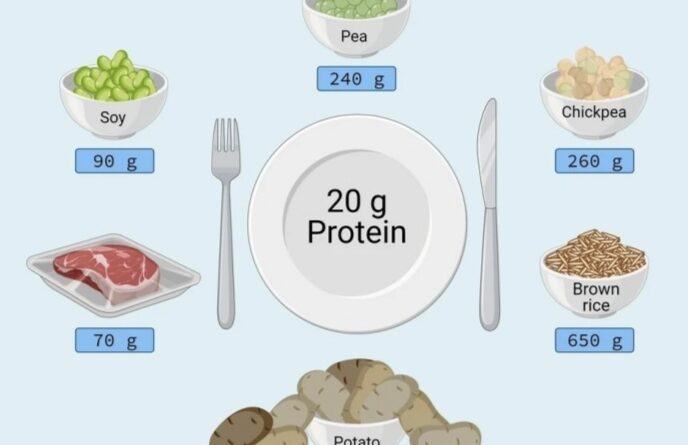How much protein is needed for muscle growth? Experts weigh in
London: Sophia Moulson, a 21-year-old fitness influencer from West Sussex, England, turned to fitness at 19 after struggling with obesity. She initially believed eating more food made her feel better but later realized that controlling her diet was crucial for both mental and physical health.
“I realised how strong it feels to be strong,” Moulson said. This motivation led her to set and achieve small fitness goals.
As she researched muscle development, she learned about the importance of protein. Being a vegetarian, she initially found it challenging to meet her protein needs through diet alone and began using protein powder.
“It was possible to meet my needs with a balanced diet, but it often takes time and planning,” Moulson said. “Protein powders offer a convenient solution, especially in my busy life.”
Protein has long been a key focus in bodybuilding, with traditional diets including meat and raw eggs. Today, protein supplements and balanced diets have become a booming industry.
How much protein is necessary?
Linia Patel, a sports dietitian at Pure Sports Medicine in London, says protein plays a vital role in the human body. Once digested, protein breaks down into amino acids, which help build and repair cells essential for development and function.
“There are more than 20,000 types of proteins in the human body, each playing different roles,” Patel said.
Protein requirements vary based on age, body type, and lifestyle. UK government guidelines suggest that inactive adults should consume 0.75 to 0.8 grams of protein per kilogram of body weight.
“For example, a person weighing 70 kilograms should consume around 56 grams of protein daily,” Patel said. Most people exceed this amount through their normal diet, with the average American getting 14 to 16 percent of their total calorie intake from protein.
However, physically active individuals require more—at least 1 gram of protein per kilogram of body weight daily. Patel also noted that women need more protein after menopause to maintain muscle mass.
“I have worked with women going through menopause who were not consuming protein as per their requirement,” she said.
While protein is essential for muscle maintenance, experts suggest balancing intake with overall dietary needs.


